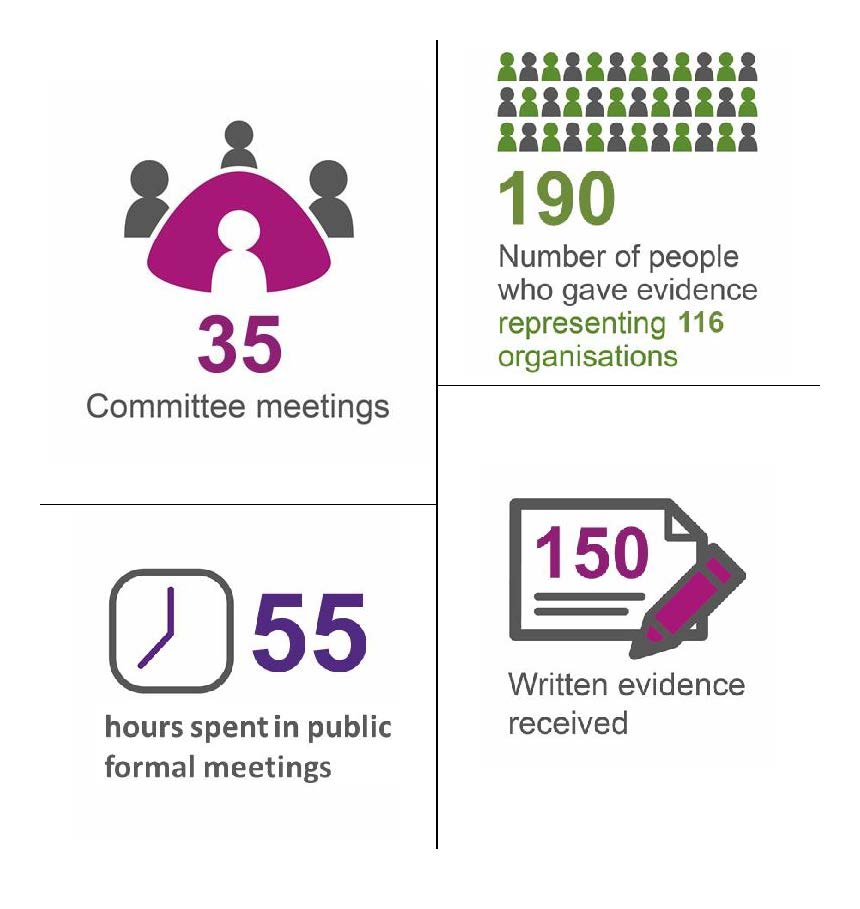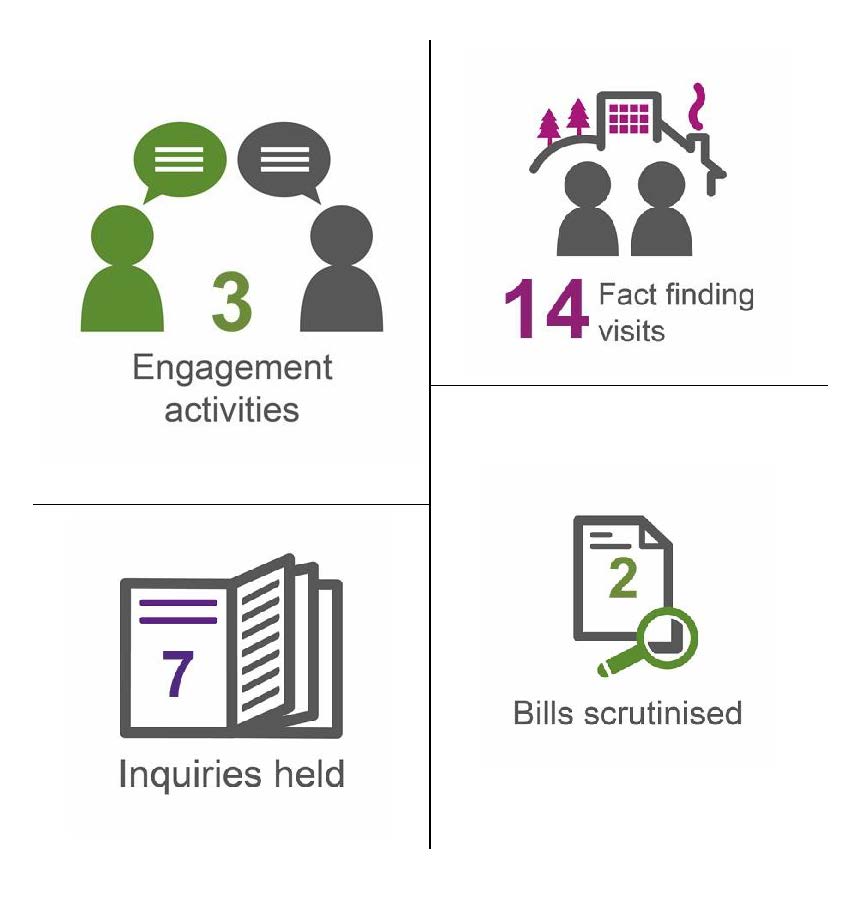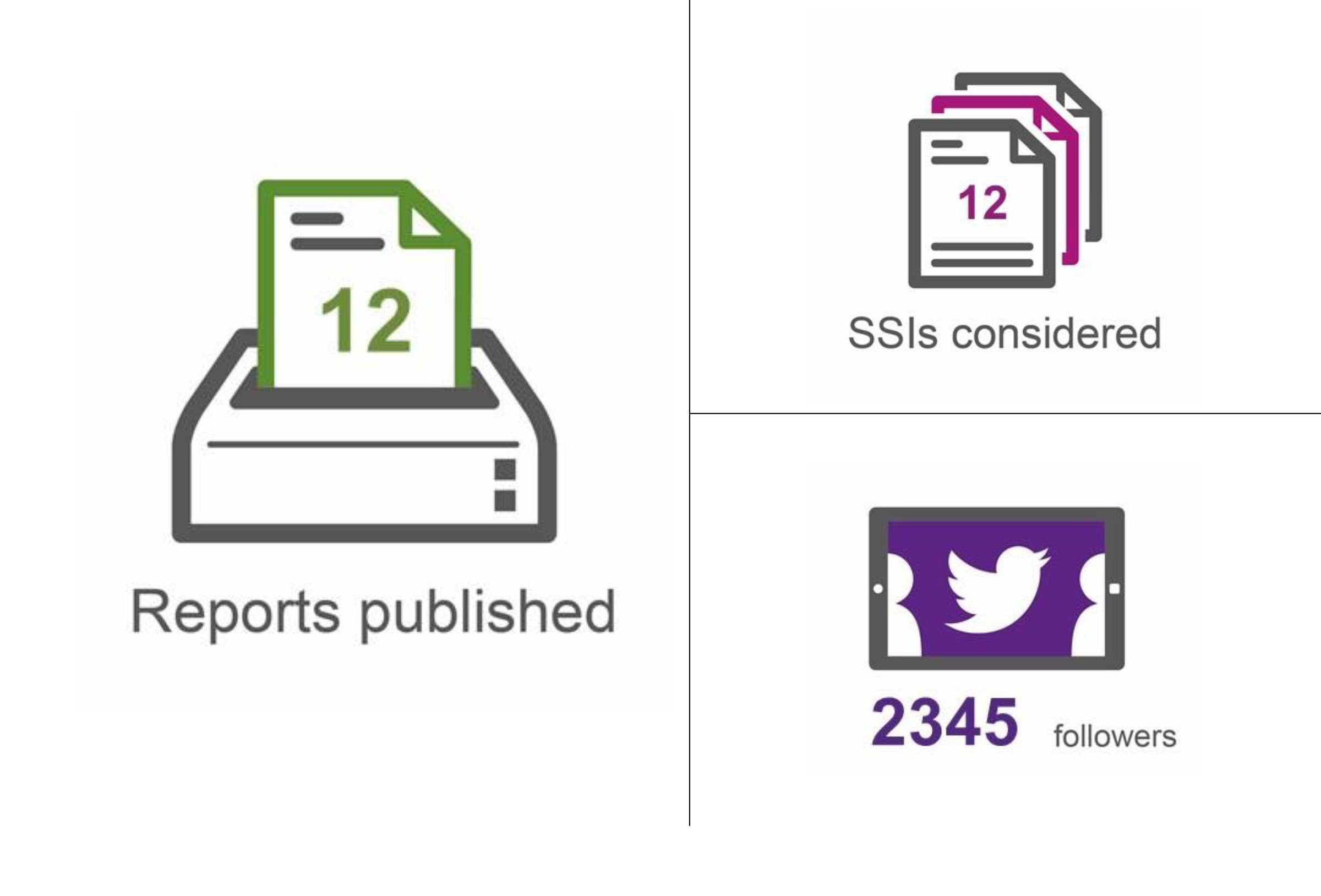Economy, Energy and Fair Work Committee
Economy, Energy and Fair Work Committee: Annual Report 2018-19
Introduction
During the parliamentary year (from 9 May 2018 to 8 May 2019), the Committee met 36 times. One meeting was held entirely in private and 35 were partly in private. Of the 35 meetings where some or all of the items were in private, this was to consider draft reports, to discuss approaches to inquiries or to review evidence heard.
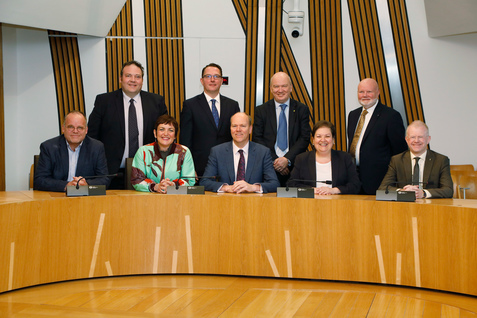
During this period, the Committee has conducted seven inquiries and considered various forms of legislation.
Committee remits and size
On 6 September the name, remit and size of the Committee was revised:
Former name: Economy, Jobs and Fair Work Committee
New name: Economy, Energy and Fair Work Committee
Former remit: To consider and report on matters falling within the responsibility of the Cabinet Secretary for Economy, Jobs and Fair Work .
New remit: To consider and report on economy and fair work matters falling within the responsibilities of the Cabinet Secretary for Finance, Economy and Fair Work; matters relating to the digital economy within the responsibilities of the Minister for Public Finance and Digital Economy, and matters relating to energy falling within the responsibilities of the Minister for Energy, Connectivity and the Islands.
The number of members was reduced from 11 to 9.
Motion S5M-13781: Graeme Dey, Angus South, Scottish National Party, On Behalf of Parliamentary Bureau: Committee Remits and Size
Previous Members of the Committee during the reporting year were:
Kezia Dugdale (from 9 January 2018 to 6 September 2018)
Fulton MacGregor (from 17 April 2018 to 6 September 2018)
Gillian Martin (from 7 June 2016 to 6 September 2018).
Inquiries and reports
The Committee has carried out seven inquiries during this year spanning a number of topics pertinent to our remit.
Scotland's Economic Performance
The Committee continued its inquiry into Scotland's economic performance: trends, challenges and future developments during 2018-19. The inquiry focused on: GDP growth and productivity, inequality and labour market issues and inclusive growth. The Committee reported its findings on 21 June and the Cabinet Secretary for Finance, Economy and Fair Work responded to the report on 3 September.
The Committee held a debate on the inquiry (along with its economic data inquiry) on 22 November 2018.
EU Structural Funds
European Structural and Investments Funds (ESIFs) currently help fund a number of economic development programmes in Scotland. They provide funding for a wide range of activities, including skills and training programmes, research and development, support to business and the development of infrastructure.
The Committee held an inquiry into ESIFs and what could replace them once the UK leaves the European Union. The Committee sought to understand how ESIFs are currently used to support economic development in Scotland, at a regional and local level. The Committee issued a call for written views, receiving 36 submissions and heard from 11 witnesses over two meetings.
Ahead of taking evidence from the Scottish Government, the Committee wrote to Rt. Hon. Lord Henley, Parliamentary Under Secretary of State, Department for Business, Energy and Industrial Strategy on 30 May. Lord Henley responded on 7 June. The Committee wrote to Lord Henley again on 22 June with its provisional findings; the Committee also wrote to the Cabinet Secretary for Economy, Jobs and Fair Work.
The Committee took evidence from the Minister for Trade, Investment and Innovation on 11 September and wrote to the Minister and Lord Henley on 3 October. Lord Henley responded on 10 October. The Minister responded on 13 October.
Impact of Bank Closures
Last year, the Committee launched a short inquiry examining the impact of bank branch closures in Scotland on local businesses, consumers and the Scottish economy. The Committee continued to take evidence in 2018-19, hearing from 18 witnesses over the course of four meetings. The Committee held a focus group in Leven during this period.
Ahead of the Committee's evidence session with the banks on 19 June, the Committee wrote to the banks to understand the decision-making processes around bank closures. The Committee reported on 3 July and sought and received responses from the Minister for Public Finance and Digital Economy and Economic Secretary to the Treasury on 17 September. The Committee held a debate on the inquiry on 18 September 2018.
Budget Scrutiny
The Parliament is moving towards a 'full-year approach' to considering the Scottish Government's budget. This means that the Committee is seeking to build budget scrutiny into its ongoing work. This year, for the first time, the Committee was required to report prior to the budget being published. This was to allow for the Committee's views to be taken into account before the budget was finalised. Following the publication of the report, the Convener took part in a Finance and Constitution Committee debate on the reports of this and other committees.
This year, the Committee focused its budget scrutiny on how the Scottish Government’s budget promotes employment and encourages fair work, with a particular focus on Scotland’s new employment support services. The Committee also gathered evidence on the financing and support available to community and locally owned energy.
The Committee launched a call for views and received 24 written submissions. We took evidence from 15 witnesses over 3 meetings. The Committee reported on 31 October 2018. The Cabinet Secretary for Finance, Economy and Fair Work responded on 19 December 2018 and the Minister for Energy, Connectivity and the Islands wrote to the Committee on 5 February 2019 to follow up on issues raised in evidence.
Publicly Owned Energy Company
In 2017, the Scottish Government made a commitment to establish a not-for-profit Publicly Owned Energy Company (POEC) to supply energy to consumers at as close to cost price as possible. In March 2018, a strategic outline case was published, setting out a series of operating models for providing competitively priced energy and helping to alleviate fuel poverty.
The Scottish Parliament’s Information Centre commissioned a research paper/scoping note on behalf of the Committee. The paper reviewed the evidence on establishing a POEC as well as looking more widely at what the purpose and model of such a body could be. It suggested four overarching objectives that a Scottish POEC could have—
Creating new energy infrastructure platforms;
Accelerating wider energy system transformation;
Increasing engagement and participation in the energy system;
Reducing costs to consumers.
The paper concluded that a Scottish POEC could deliver on a number of these objectives.
The Committee issued a call for written views, receiving 36 submissions and heard from seven witnesses over two meetings.
The Committee wrote to the Minister for Energy, Connectivity and the Islands on 14 December 2018 recommending that the POEC will require a clear mission statement to ensure that its focus of providing cheaper energy and alleviating fuel poverty is preserved. The Committee recommended that it be an independent body, accountable to the Parliament. The Minister replied on 19 March 2019.
Business Support Inquiry
The Committee held an inquiry on business support to understand the range of services available to new and existing small and medium-sized businesses at a local level across Scotland, with a focus on Business Gateway.
The Committee was keen to learn how well Business Gateway delivers services for businesses hoping to grow, employ more staff or expand into new markets. The Committee also wanted to find out why many new and existing businesses do not use Business Gateway and what alternative sources of advice and information are available.
The Committee issued a call for written views, receiving 21 submissions. In addition to the call for written views, the Committee ran an online survey which received 355 completed responses. The Committee also wrote to every local authority and heard from 20 witnesses over four meetings.
On 26 November 2018, Committee members visited Dublin to compare business support in Scotland and Ireland and met with the Department for Business, Enterprise and Innovation, Enterprise Ireland and visited a Local Enterprise Office (LEO) in Fingal. The Committee also visited Lanarkshire Enterprise Services on 13 November and heard from three businesses. On 3 and 4 December, the Committee visited the Highlands and met with Highland Council, Highland and Islands Enterprise, Business Gateway Inverness and five businesses.
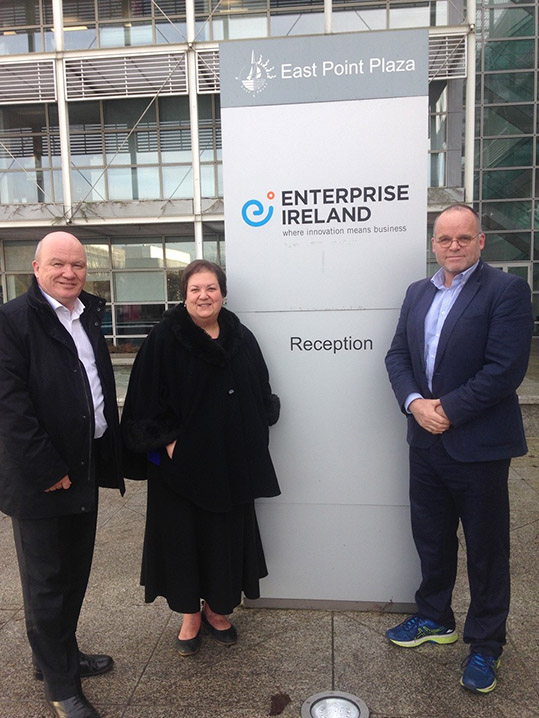
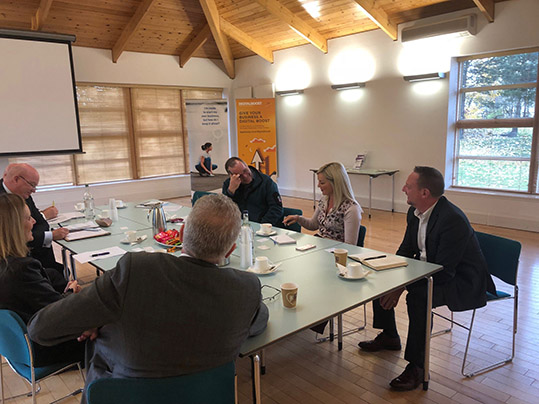
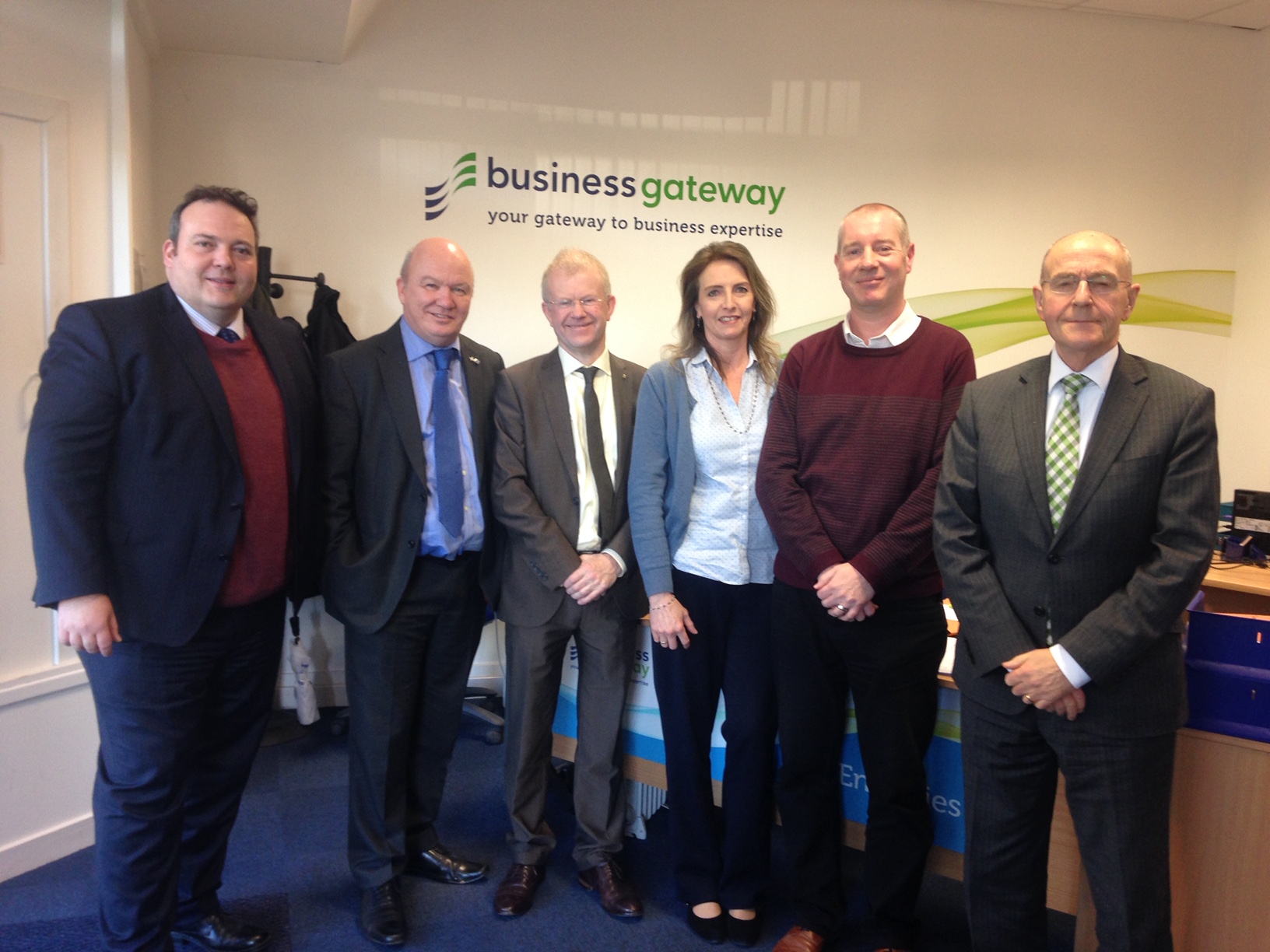
The Committee published its report on 20 February. The Scottish Government responded on 18 April. COSLA responded on 3 May.
Construction and Scotland’s Economy
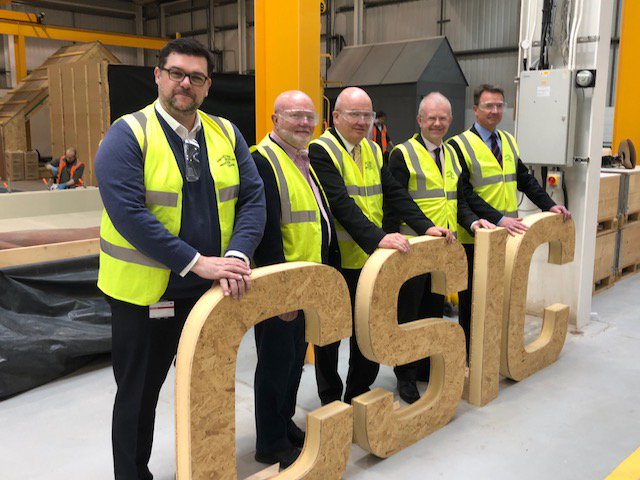
The Committee held an inquiry on the construction sector in Scotland to understand the characteristics and challenges of Scotland’s construction sector. The inquiry focused on: economic impact; access to finance; skills; procurement; infrastructure investment; land asset management and innovation.
The Committee issued a call for written views which received 57 submissions. The Committee heard from 51 witnesses over the course of nine meetings.
On 18 February, the Committee visited the Construction Scotland Innovation Centre in Blantyre. Whilst there, the Committee held two focus groups that were attended by 20 people representing a variety of different types of construction business.
As part of National Apprenticeship Week, Committee Members visited Edinburgh College on 4 March 2019 to talk to apprentices and staff about the construction opportunities for young people. The Committee also visited City Building Ltd in Glasgow on 12 March. The Committee intends to report on this inquiry in June 2019.
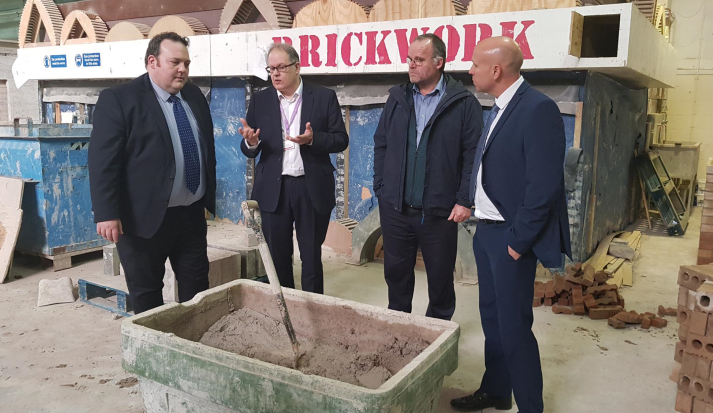
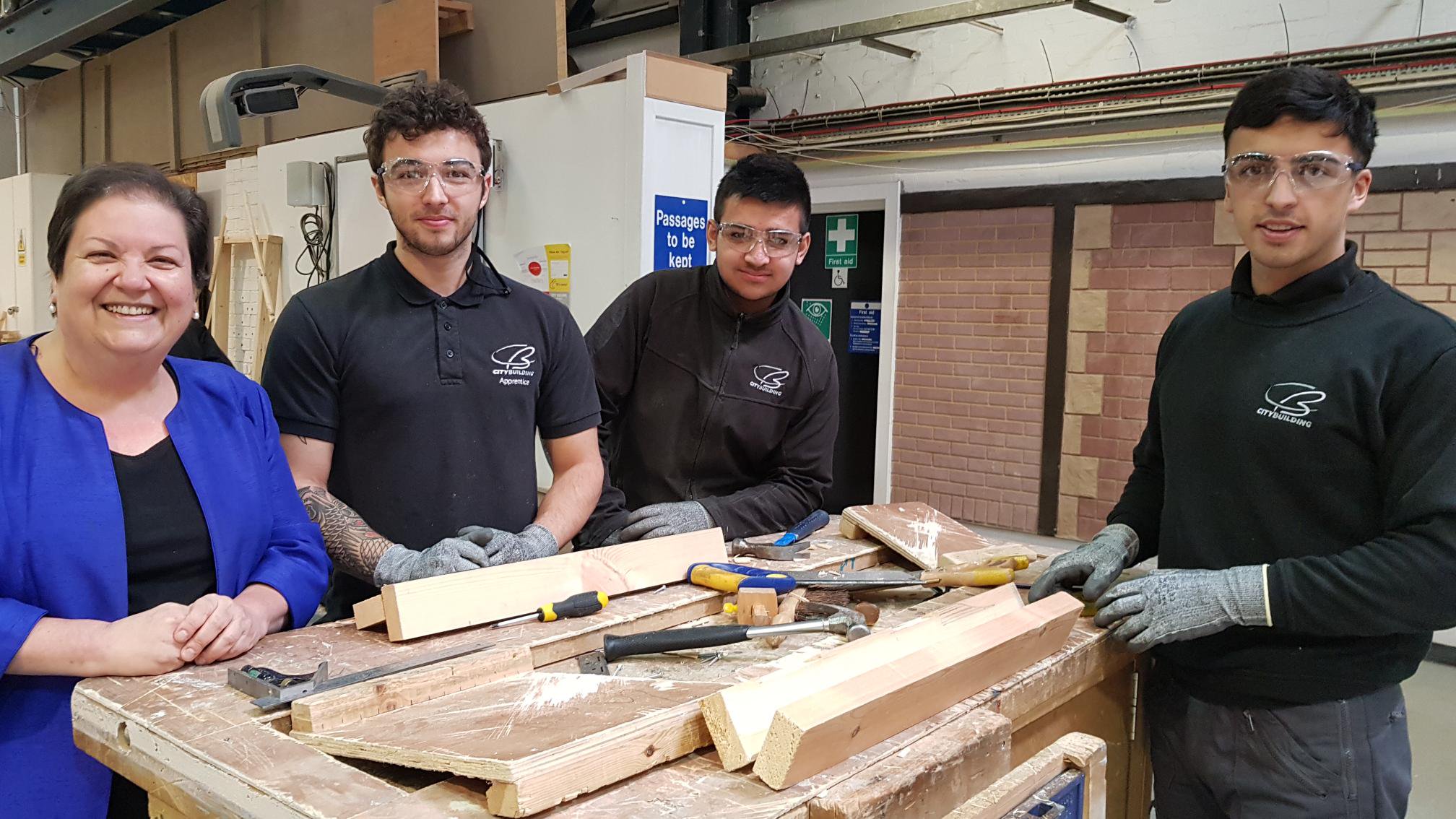
One-off evidence sessions
Kaiam UK Ltd
On December 22, it was announced that Kaiam Europe Limited and Kaiam UK Limited had gone into administration. This followed earlier reports that the company had been facing cashflow problems and were struggling to pay their employees.
Neil Findlay MSP wrote to the Committee on 24 December, urging the Committee to hold an inquiry following recent events at Kaiam UK Livingston. The Committee also received a submission from a supplier and from the Minister for Business, Fair Work and Skills. The Committee took evidence from Scottish Enterprise at its meeting on 15 January; they provided follow up information on 25 January.
As follow up to this evidence session, the Committee has agreed to scrutinise regional selective assistance and financial support for businesses available from the enterprise agencies as part of budget scrutiny for 2020-21.
Registers of Scotland
At its meeting on 29 January, the Committee took evidence from Jennifer Henderson, Keeper of the Registers of Scotland, and Janet Egdell, Operations Director and Accountable Officer from the Registers of Scotland. The Committee wrote to the Minister for Public Finance and Digital Economy and the Keeper of the Registers of Scotland regarding its plans for future work. The Keeper responded on 2 April and the Minister responded on 12 April. Jackie Baillie, John Mason and Andy Wightman visited the Registers of Scotland on 28 March.
BiFab, the offshore wind energy sector and the Scottish supply chain
Burntisland Fabrications Limited (BiFab) makes structures for the oil and gas and renewable energy industries. It was formed in 2001 following a management buyout from its previous owners. BiFab operates three facilities across Scotland: in Burntisland and Methil in Fife and a yard in Arnish on the Isle of Lewis.
On 7 March, the Committee received a joint letter from GMB Scotland and Unite the Union regarding the future of BiFab. The Committee then held an evidence session on 23 April with the owners of BiFab, the unions, the enterprise agencies and the renewables sector. The Committee wrote to the Cabinet Secretary for Finance, Economy and Fair Work on 30 April; the Cabinet Secretary responded on 1 May.
Legislation
Damages (Investment Returns and Periodical Payments) (Scotland) Bill
The Damages (Investment Returns and Periodical Payments) (Scotland) Bill was introduced on 14 June. It made provision in relation to the assumed rate of return on investment of particular damages awarded in personal injury cases, and in relation to periodical payments of various damages awarded in personal injury cases.
The Committee's general call for evidence on the Bill garnered 25 responses, primarily from the legal and insurance sectors. The Committee heard from 13 witnesses over the course of three meetings.
The Committee agreed its Stage 1 report on the general principles of the Bill on 3 December 2018. The Minister for Community Safety responded on 13 December 2018. The Committee considered amendments to the Bill at Stage 2 on 22 January 2019.
The Bill was passed on 20 March 2018 and received Royal Assent on 24 April 2019.
Scottish National Investment Bank Bill
The Scottish National Investment Bank Bill was introduced on 27 February. The Bill requires Scottish Ministers to establish the Bank and gives them powers to capitalise it. It also makes provision for the purpose, objects, ownership and governance of the Bank.
The Committee's call for evidence received 27 submissions and the Committee has heard from six witnesses so far.
Subordinate Legislation
In this parliamentary year, the Committee dealt with seven affirmative instruments and five negative instruments.
Common Financial Tool (Scotland) Regulations 2018 [draft]
Currently, the Common Financial Statement (CFS) is the method that assists creditors, advisers, and debtors to determine an individual's or household's financial situation. The draft regulations proposed to replace the Common Financial Statement with the Standard Financial Statement.
The regulations were laid on 15 June and the Committee agreed to write to stakeholders requesting a copy of the responses that they made to the Accountant In Bankruptcy's consultation and any further comments that they had. The Committee received responses from 10 organisations. The Regulations were withdrawn on 10 August 2018. The reason given was that some advice sector organisations were seeking a longer lead-in time to implement the proposed changes. The regulations were relaid on 19 September with the only change being the date of commencement.
The Committee decided to take evidence on the issues raised in written evidence and heard from eight witnesses over two meetings. On 7 November, the Convener wrote to the Minister for Business, Fair Work and Skills to highlight the Committee's significant reservations about the regulations. The Minister replied on 9 November withdrawing the instrument. On 11 December the Committee took evidence from Minister for Business, Fair Work and Skills, Accountant in Bankruptcy and the Depute Accountant in Bankruptcy.
The Committee reported on 28 January and the Minister for Business, Fair Work and Skills responded on 15 February.
European Union (Withdrawal) Act 2018
Ahead of the UK's withdrawal from the European Union, a protocol was agreed for considering proposals for UK statutory instruments under the European Union (Withdrawal) Act 2018. This was to afford the Scottish Parliament the opportunity to scrutinise Scottish Government proposals to consent to the UK Government legislating in devolved areas in these circumstances. The Committee has considered 12 EU Exit statutory instruments under the protocol.
Common frameworks
The Committee received a letter from the Finance and Constitution Committee on 25 March seeking 'to explore a more co-ordinated approach with other Scottish parliamentary committees to developing the Scottish Parliament’s scrutiny role in relation to the new powers arising from the UK’s withdrawal from the EU.'
The Committee wrote to the Cabinet Secretary for Finance, Economy and Fair Work seeking information on common frameworks within the Committee's remit. The Committee received a response on 17 April 2019 and took evidence from the Cabinet Secretary on 30 April 2019.
Engagement and equalities
Business in the Parliament
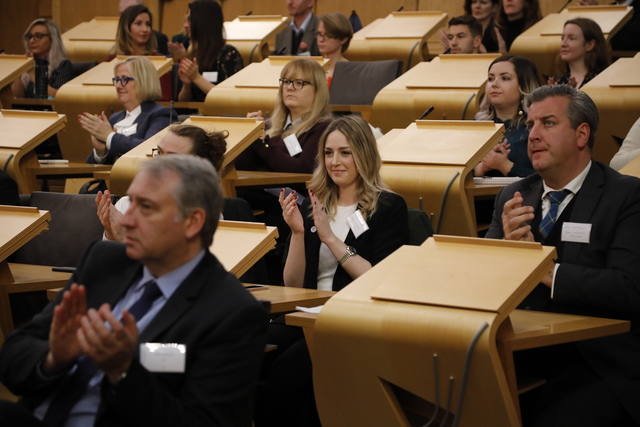
The Business in the Parliament Conference is hosted jointly by the Scottish Parliament and the Scottish Government. It aims to bring Scotland's businesses and politicians together and forms part of a regular and on-going Parliament and Government programme of engagement with business organisations and senior business leaders across Scotland.
The theme of the 2018 event was Young at Heart: Beating the Drum for Scottish Business in the Year of Young People. Over 200 delegates gathered at the Scottish Parliament for the conference on the 25 and 26 October 2018. The event saw participants discuss a range of enterprise-related issues with politicians, among them the First Minister. The event, which was chaired by the Presiding Officer, featured keynote addresses from Edel Harris, Chief Executive of Cornerstone and EY Scotland Entrepreneur of the Year 2017 and presentations from Festival of Youth Enterprise finalists Lite (winners of the SIS Social Impact Award) and Estrela (winners of the Company of the Year Award).
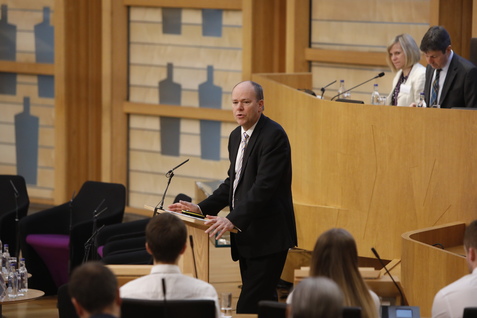
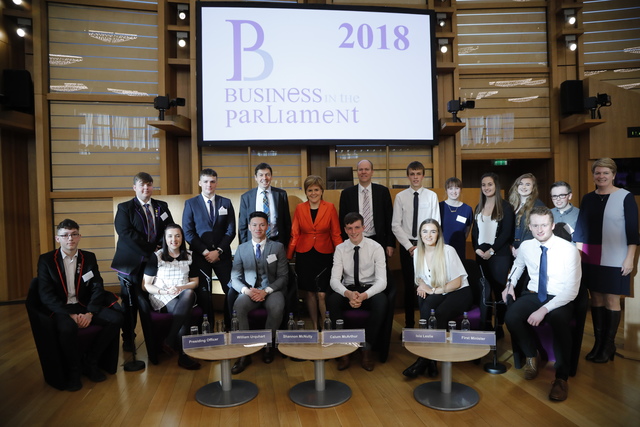
Engagement
To engage with individuals and organisations outside of Holyrood, the Committee visited fifteen organisations across Scotland as part of its inquiries and held three focus groups – one in Leven (as part of the Impact of Bank Closures inquiry) and two at the Construction Scotland Innovation Centre in Blantyre.
To ensure that the Committee received as wide a response as possible for its Business Support inquiry, the Committee ran an online survey that received a high response.
As part of the Construction inquiry the Committee held an evidence session with a group of nine apprentices (seven Modern Apprentices and two Graduate Level Apprentices) from three different institutions (Edinburgh College, New College Lanarkshire and Heriot Watt University).
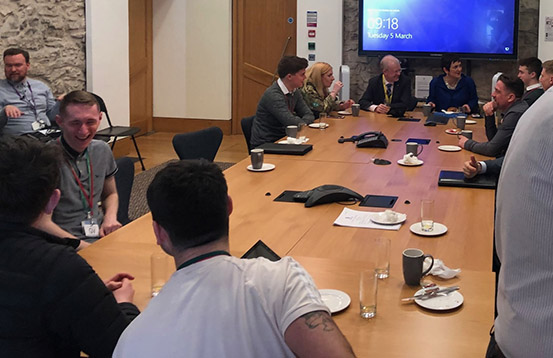
In addition to the Committee's presence on Twitter, the Committee circulates a weekly newsletter covering its current and future work to a range of stakeholders.
Infographics
